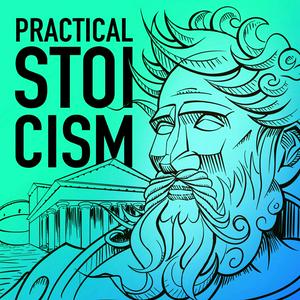I am a public philosopher, it is my only job. I am enabled to do this job, in large part, thanks to support from my listeners and readers. You can support my work, keep it independent and online, at https://stoicismpod.com/members
Looking for more Stoic content? Consider my 3x/week newsletter "Stoic Brekkie": https://stoicbrekkie.com
Musonius Rufus Discourse 12: https://archive.org/details/MUSONIUSRUFUSSTOICFRAGMENTS
In this episode, I respond to a candid listener email asking about the Stoic position on sex work. The question is not framed with hostility or judgment, and for that reason I take it seriously. This is not an episode condemning women, sex workers, or anyone’s personal choices. It is an attempt to think clearly and Stoically about consent, justice, harm, and choice.
I begin by clarifying what the listener is actually asking. He is not asking whether men are wrong to engage sex workers, but whether women selling sex is unjust from a Stoic perspective. That distinction matters. Stoicism is not interested in purity rules or guilt. It is interested in whether actions are chosen rationally, freely, and without injustice.
I then address my own bias. I do not like sex work as a practice, largely because I am skeptical that it is ever entirely free from coercion, manipulation, or long-term harm. I make that bias explicit so it can be accounted for rather than hidden. A Stoic answer requires setting personal discomfort aside and asking whether something is unjust, not whether it feels distasteful.
To explore the classical position, I turn to Musonius Rufus and his extremely restrictive views on sex. Musonius argues that sex is only justified within marriage and only for procreation. I explain why I find this position impractical, overly rigid, and inconsistent with the rest of Stoic ethics. Stoicism is about rational choice, not outcome fixation, and reducing sex to reproduction ignores human health, intimacy, and context.
From there, I outline what Stoicism actually cares about. Sex is unjust only when it involves harm, coercion, deception, addiction, or unfair leverage. If a sex worker is freely choosing her work, has the power to refuse clients, is not being forced by circumstance or threat, and if the client is acting honestly and without deception, then no injustice is clearly present. In that case, there is no Stoic violation simply because money is exchanged.
I also stress that moral clarity does not end with permissibility. Just because something is not unjust does not mean it is automatically wise, healthy, or worth repeating. Stoicism asks us to remain attentive to who we are becoming through our choices. Avoiding injustice does not excuse us from remaining pro-social, reflective, and responsible for our future character.
I conclude by emphasizing that Stoicism offers very little in the way of sexual rules, but a great deal in the way of ethical reasoning. The question is not whether sex work is “unstoic” in the abstract. The question is always whether a choice is rational, just, non-harmful, and aligned with the kind of person we are trying to become.
Listening on Spotify? Leave a comment! Share your thoughts.
Podcast artwork by Original Randy: https://www.originalrandy.com
Learn more about your ad choices. Visit megaphone.fm/adchoices


